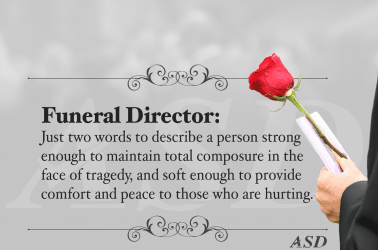Feb 11, 2020
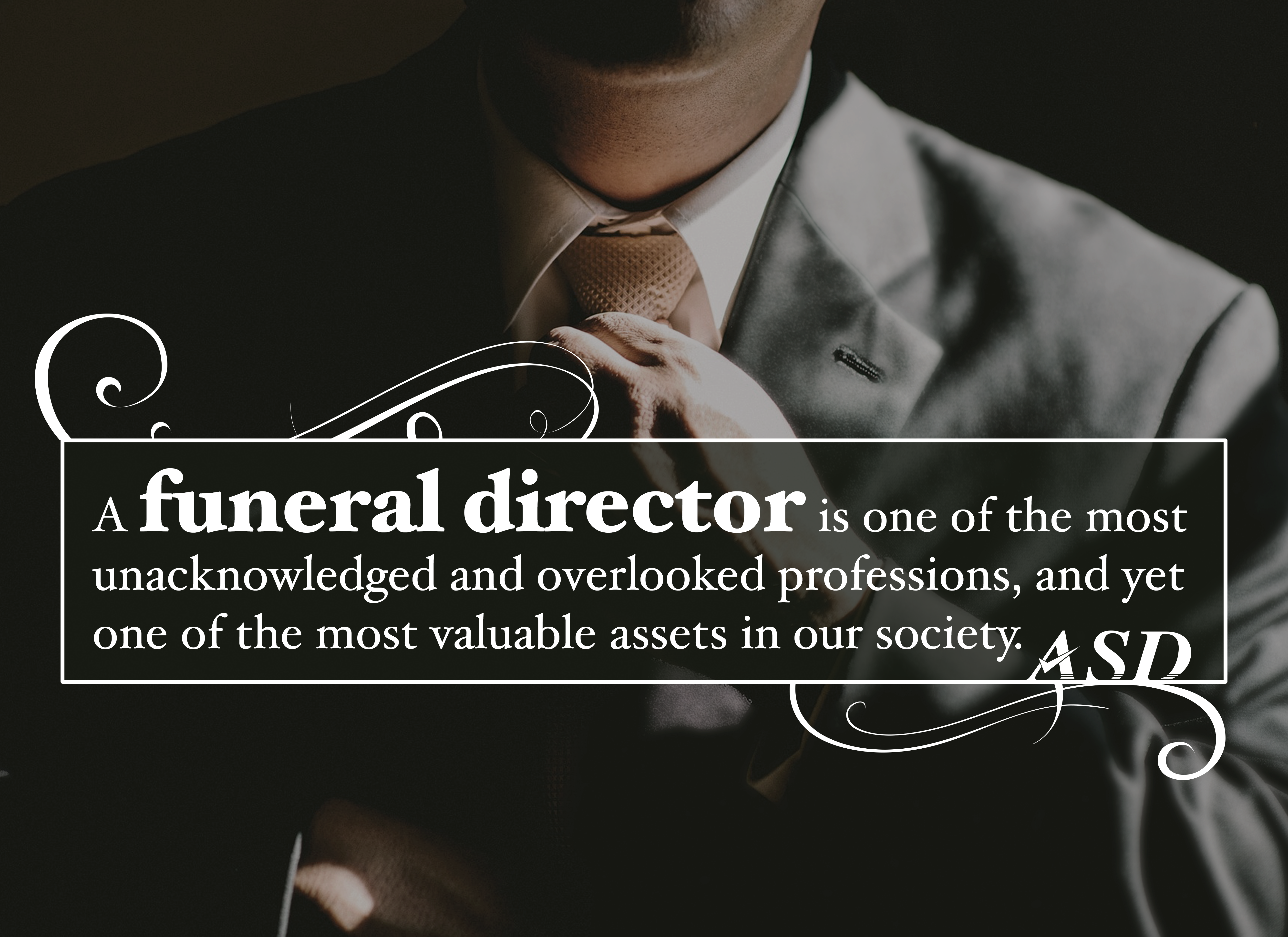
Funeral directors are largely unrecognized by our culture. Many people outside of the profession are unaware of the different characteristics and personality traits one must possess in order to be a funeral director. An even greater number of people are unfamiliar with the many sacrifices funeral directors make on a daily basis in an effort to provide the highest level of support to families in need. These last responders are truly the unsung heroes of our society. There are so many different ways funeral directors extend themselves to others 100%, often donating services, giving back to their communities and stepping up when a major crisis occurs.
Here at ASD, we know that funeral service community is made up of some of the most dedicated and kind-hearted people one could ever meet. We feel honored to serve such an incredible profession. We believe in doing everything we can to raise awareness and to show our appreciation for one of the hardest working groups of people you’ll ever meet. Here are a few reasons why.
16 Character Traits that Define Funeral Service Professionals
1. Purposeful
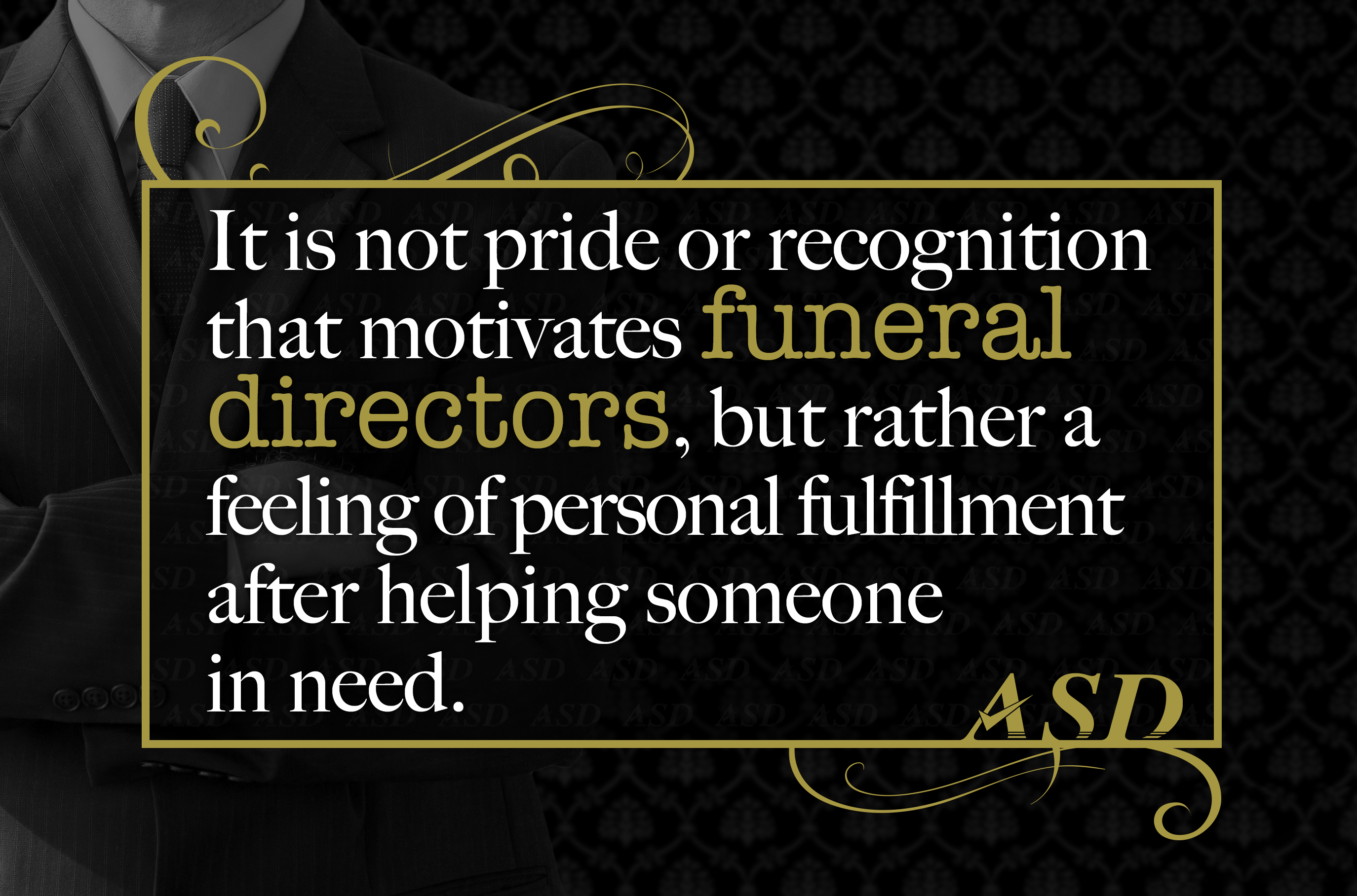
The purpose of becoming a funeral director is not to seek out recognition or awards. Those that become involved in this work are answering a deeper calling – one that motivates them to seek purpose by helping those who are suffering.
2. Empathy
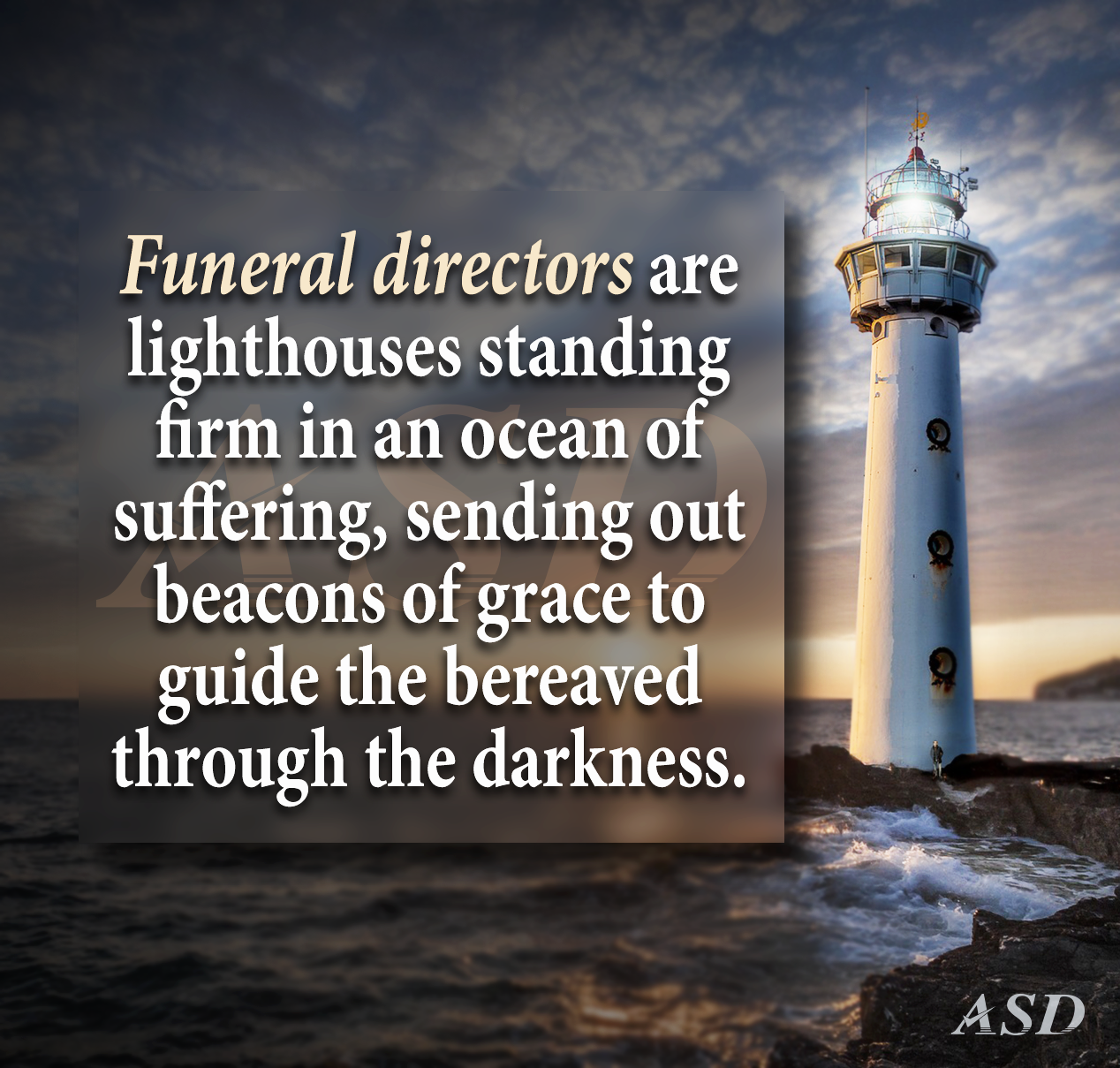
Taking on the pain and sadness of another human being is not something most people are capable of doing. It takes a remarkable sort of person to willingly walk into the eye of a hurricane and withstand the battering waves of another person’s grief. Funeral professionals give the bereaved something to hold on to in the midst of that dark and unrelenting storm.
3. Selflessness
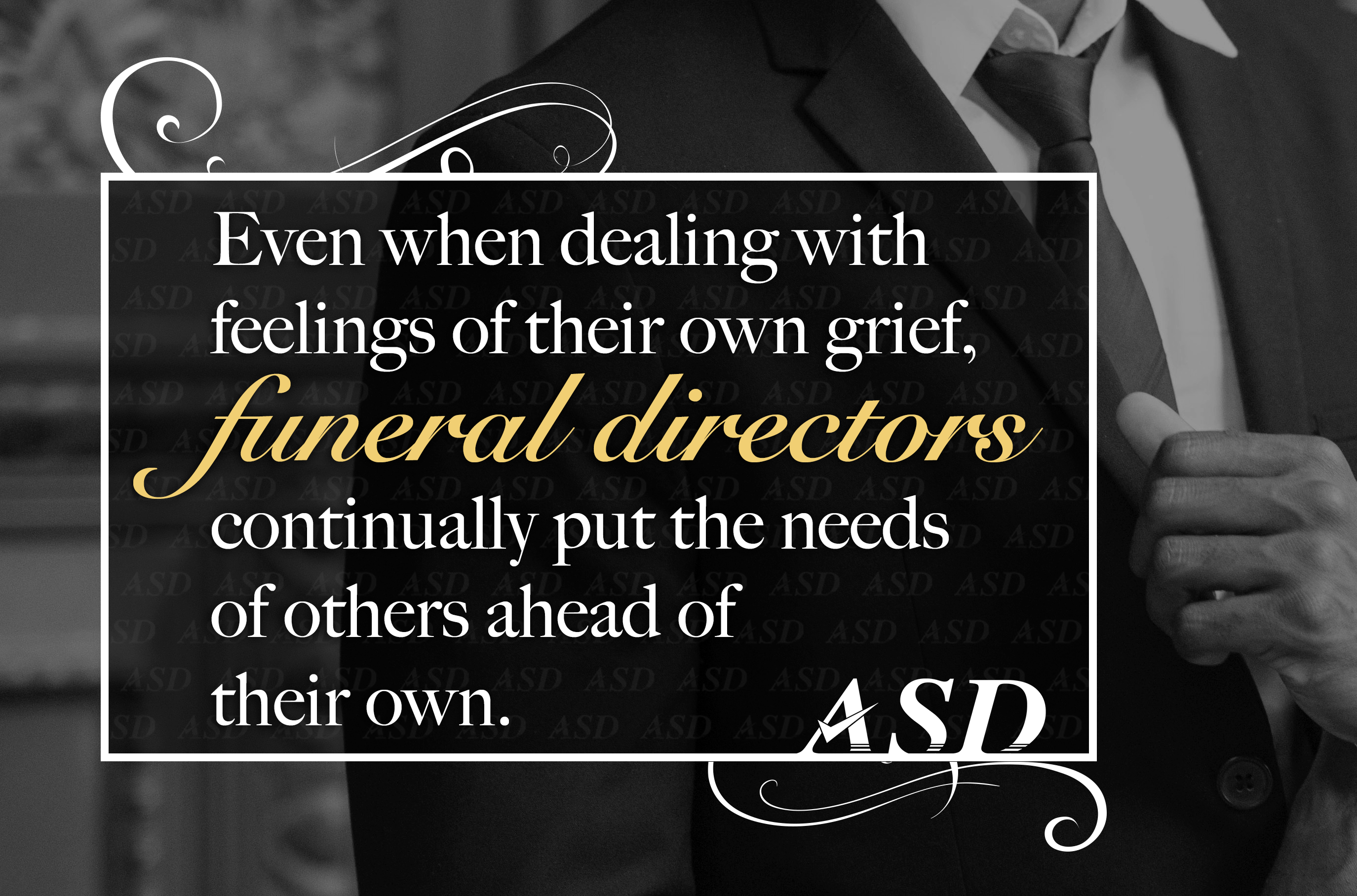
Just about every person who walks on this earth must confront a major tragedy at some point in their lives. Grief triggers are abundant for anyone who has ever lost a loved one, but funeral directors, those painful memories often resurface on a daily basis due to the nature of their work. Rather than being able to let out those feelings of grief, funeral directors must often push aside their own personal tragedies in order to focus on the families they are serving. For those working outside the funeral profession, it is difficult to fathom how much of a personal sacrifice this must require.
4. Perseverance
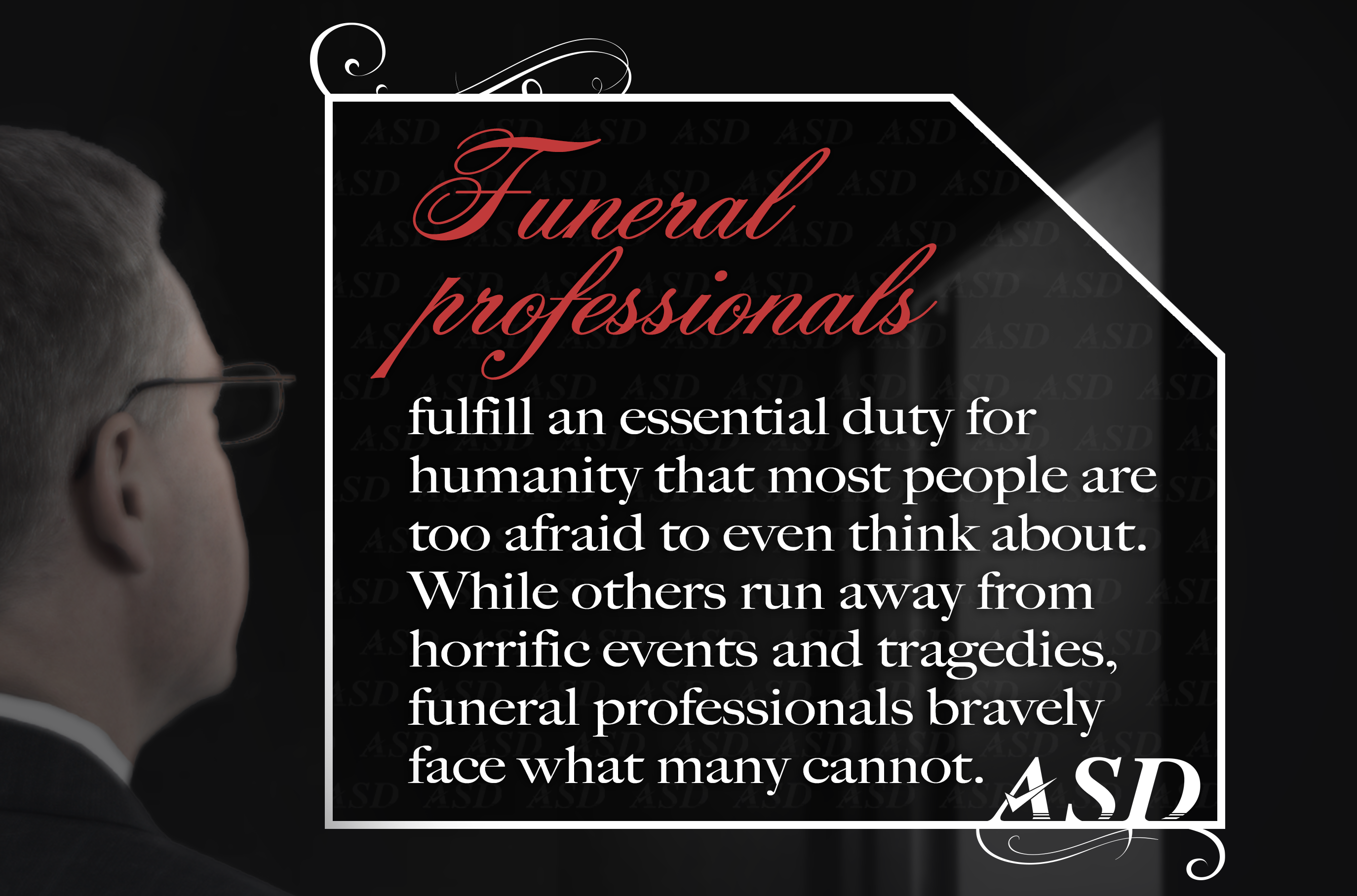
One of the often-overlooked side effects of working in funeral service is Post Traumatic Stress Disorder. Secondary trauma and PTSD represent a serious group of related problems for people who care for, hear about or witness the intense suffering of others. Funeral directors are especially vulnerable to these conditions due to the tragedies they witness so often.
5. Dedication
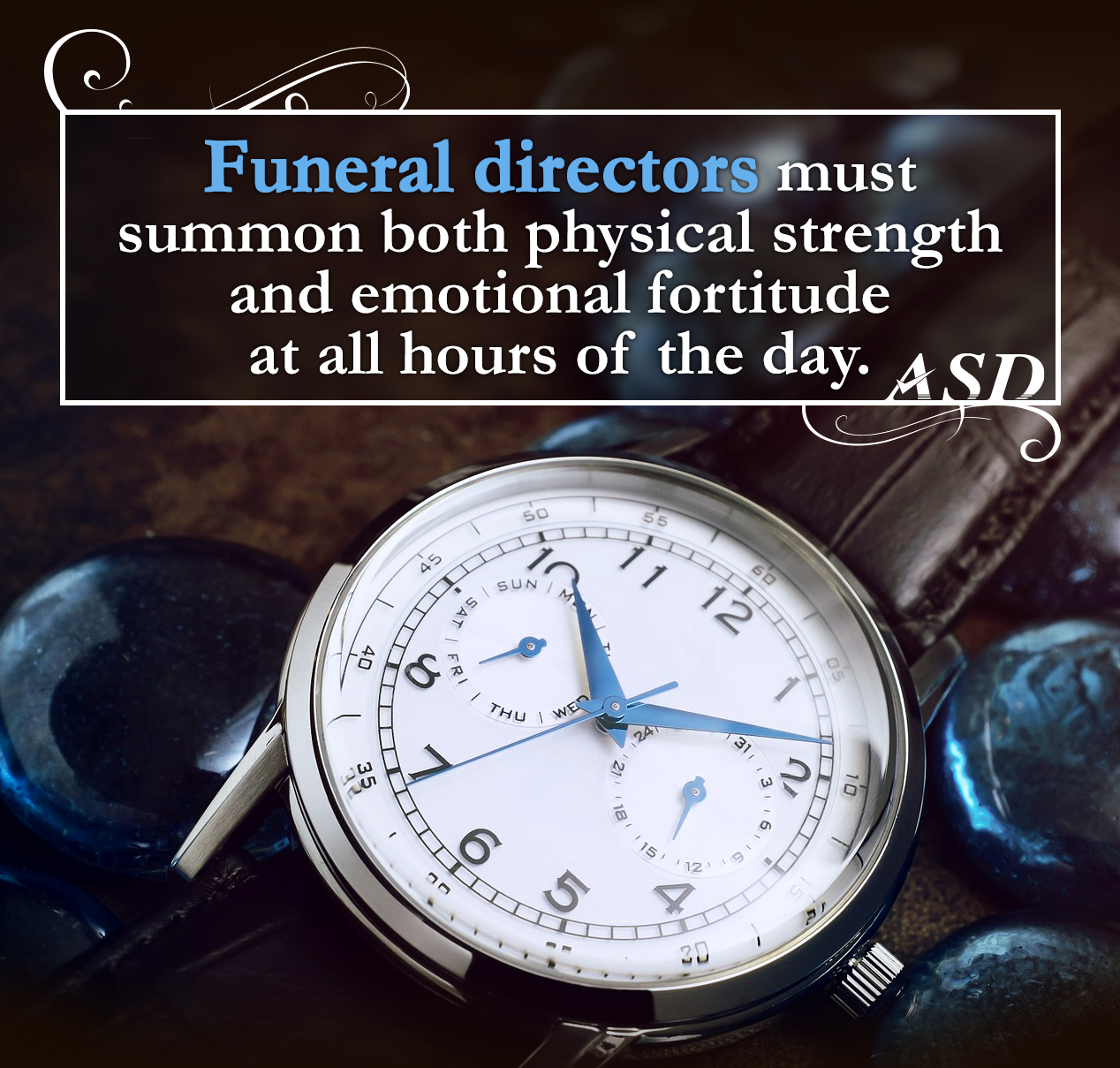
It’s not just the unpredictable schedule or the willingness to do physical labor at 3am that separates a funeral director from others – it’s the emotional availability and attentiveness. Show us another profession where a person is willing to wake from a deep sleep, night after night, in order to provide empathy and reassurance to those grieving.
6. Reverence

William Gladstone once wrote, “Show me the manner in which a nation cares for its dead and I will measure with mathematical exactness the tender mercies of its people, their respect for the laws of the land, and their loyalty to high ideals.” These words encompass why the work of funeral directors is essential for the morality and righteousness of mankind.
7. Altruism
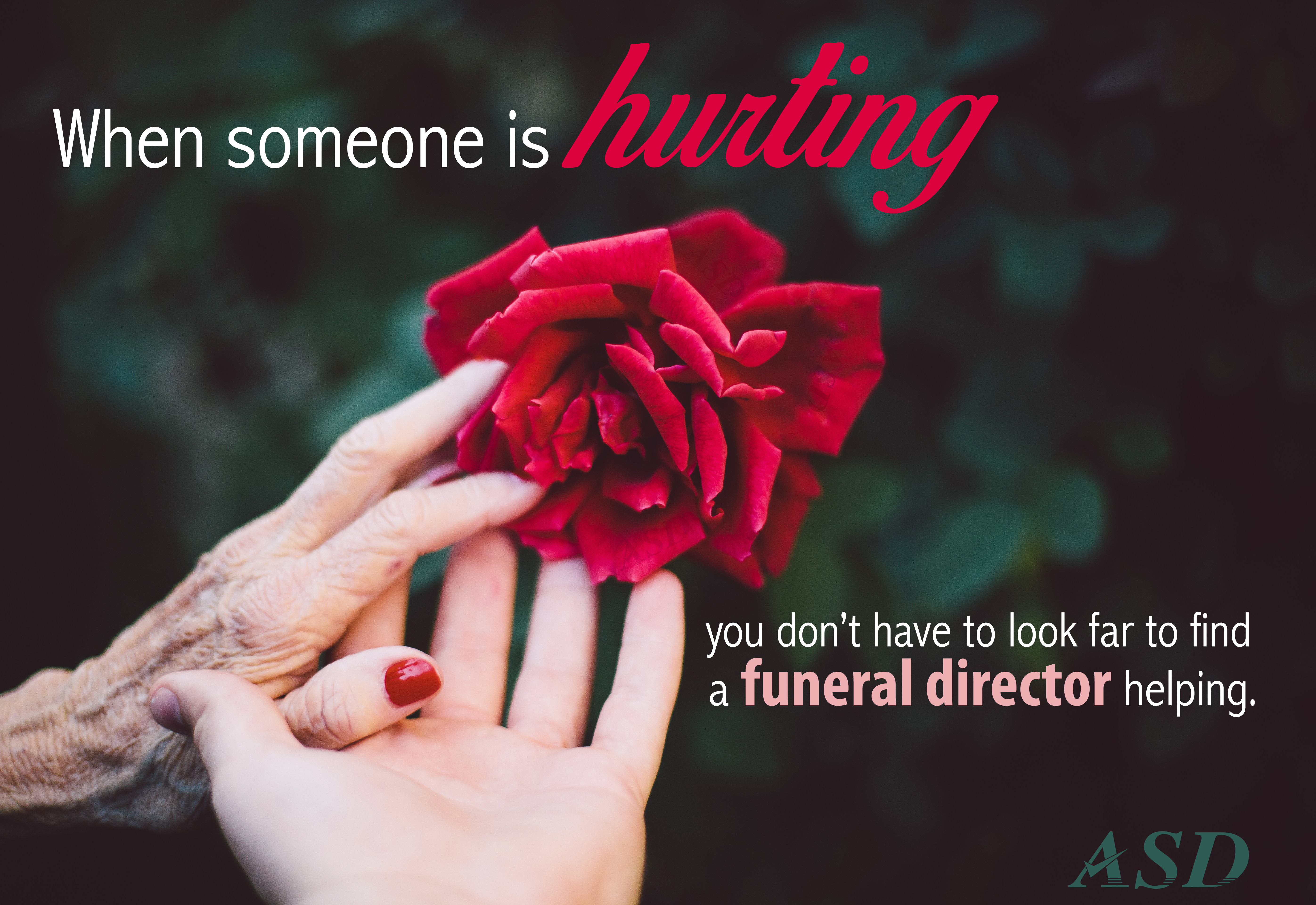
The philanthropic efforts of funeral directors have helped countless people to rebuild their lives after a tragedy. These acts of goodwill rarely get the recognition they deserve, so we at ASD wanted to shine a spotlight on a few of the many selfless funeral professionals out there that have gone above and beyond to help others. From donating services, to honoring veterans to giving back to their community, funeral directors demonstrate how much they care with their actions.

8. Humility
Being continually misunderstood by the public and misrepresented by the media doesn’t stop funeral professional from doing praise-worthy work. Every single day, behind the door of a funeral home, a truly beautiful moment is taking place that demonstrates the power of remembrance. Most of these moments are private, unseen by others outside of the funeral service community and the families they serve. Just because there are no images of funeral directors carrying people from a burning building does not meant that they do not rescue people in turmoil on a daily basis.
9. Emotional Fortitude
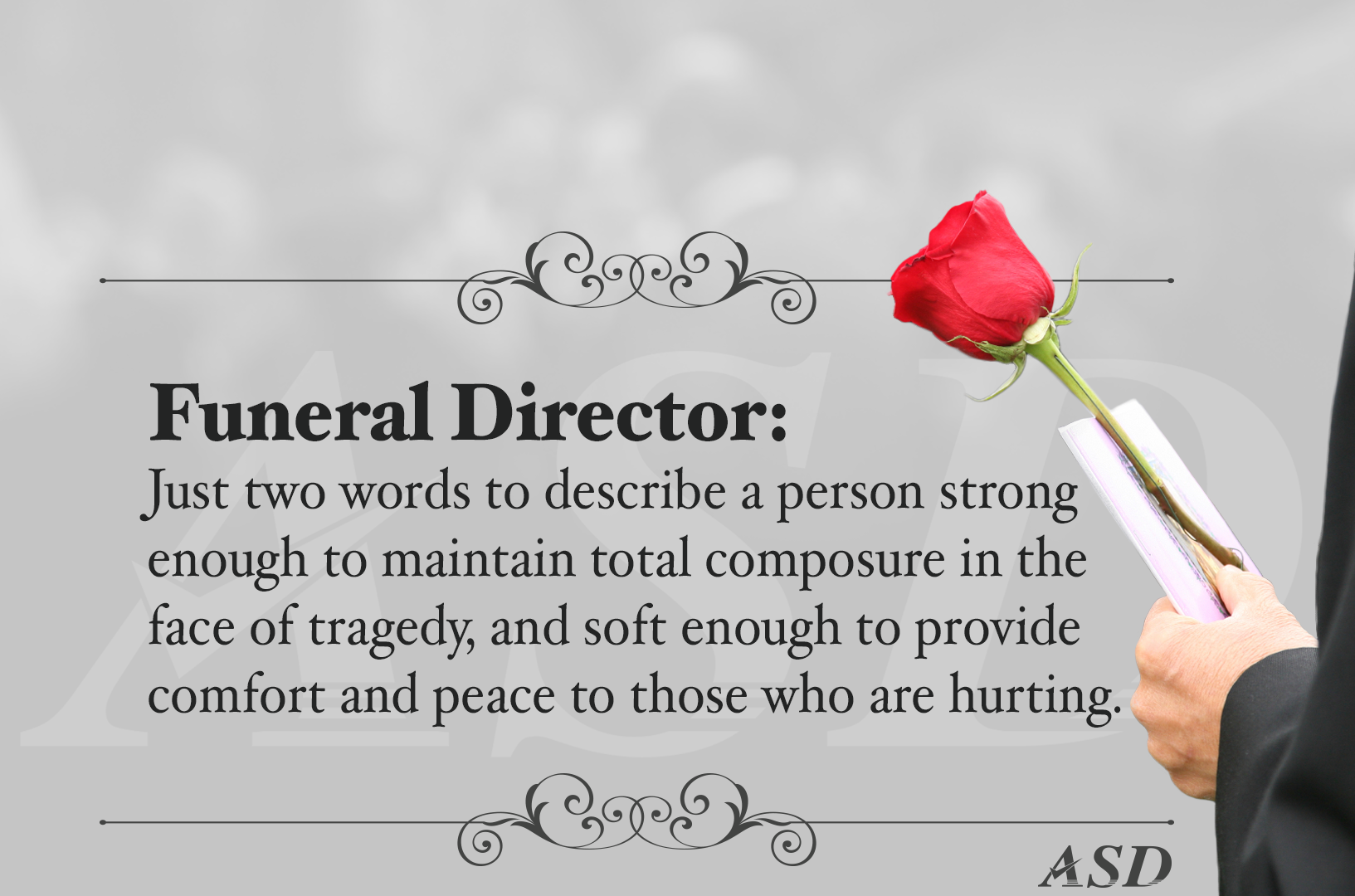
There isn’t a word that completely describes what a funeral director must be, because there is no other vocation or job that requires such self-sacrifice. To be both calm and collected in the face of sorrow, yet compassionate and empathetic towards those grieving is like walking on an emotional tightrope. Funeral professionals must always be in touch with their feelings without ever letting them overpower their composure.
10. Reliability
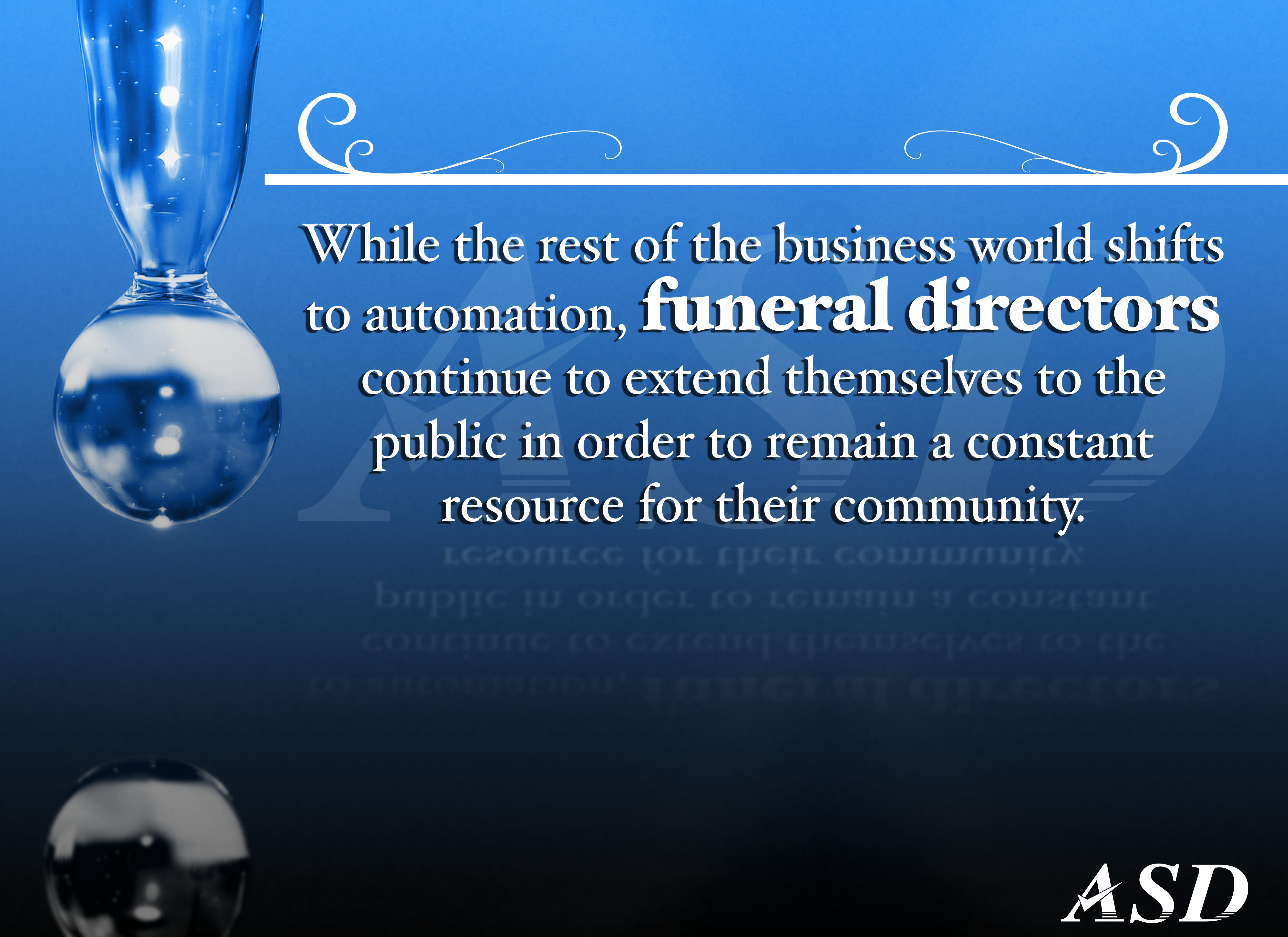
Unlike other professions, funeral directors can’t simply put an auto-responder on their email and check out for a few days. The constant, 24/7 demands of the funeral home require morticians to have a strong work ethic and an enduring commitment to families in their community. There are a lot of things in life that can be mechanized, but a personal connection is not one of them.
11. Humanitarian
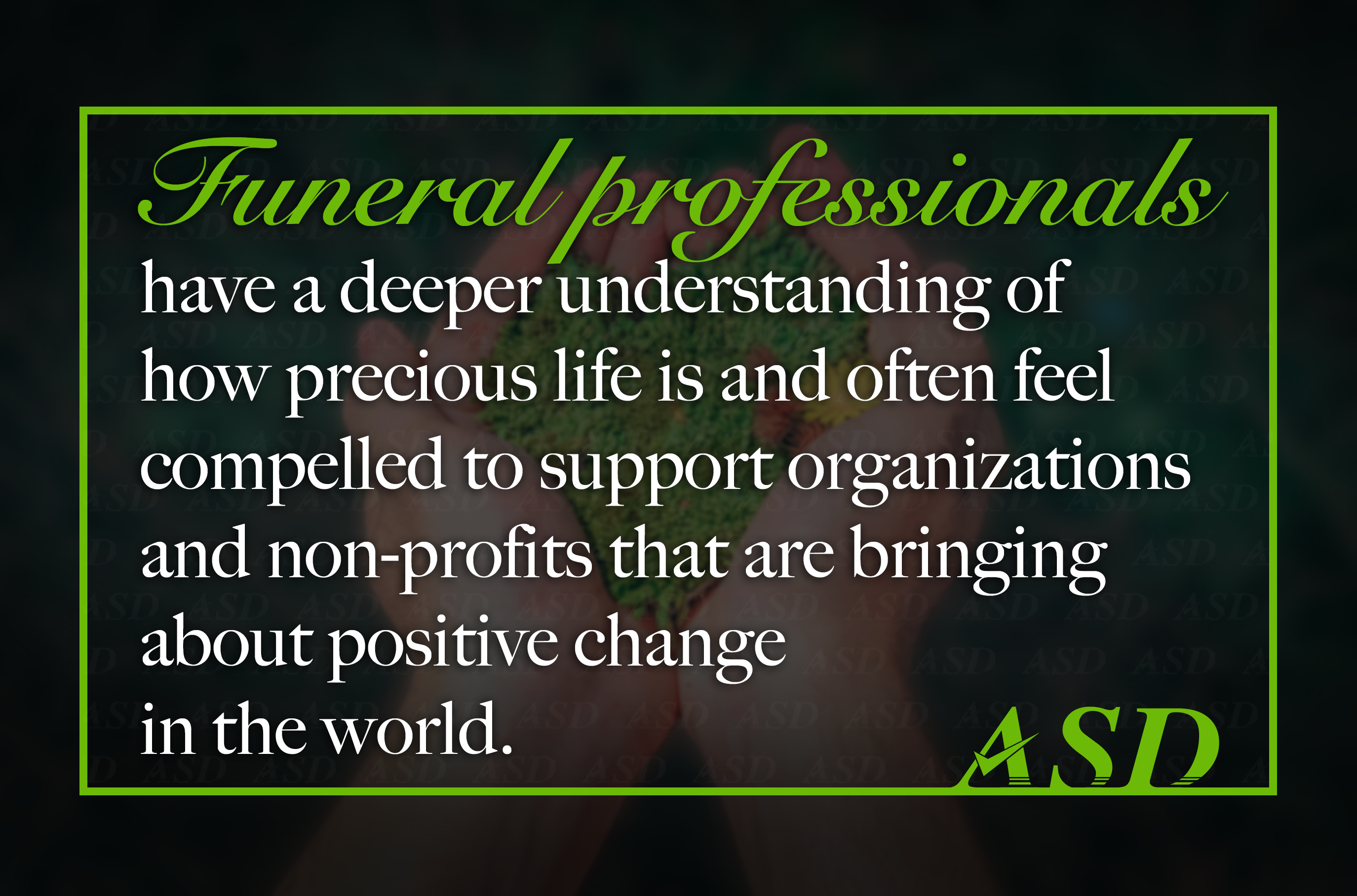
Funeral directors must often bear witness to life’s most tragic stories. They see firsthand what causes great suffering and often feel compelled to make a difference. Funeral directors who have witnessed the impact of substance abuse deaths are often called to help raise awareness about the impact of drug dependence. Funeral homes located in crime-riddled areas have begun holding rallies, parades and other events to try to end the violence in their community. Those that are tasked with handling extremely difficult cases related to suicide or childhood cancer will often devote their support to raising funds and creating awareness. These are just a few examples of the many ways funeral directors become personally invested in important causes as a direct result of their work in death care.
12. Service-Hearted
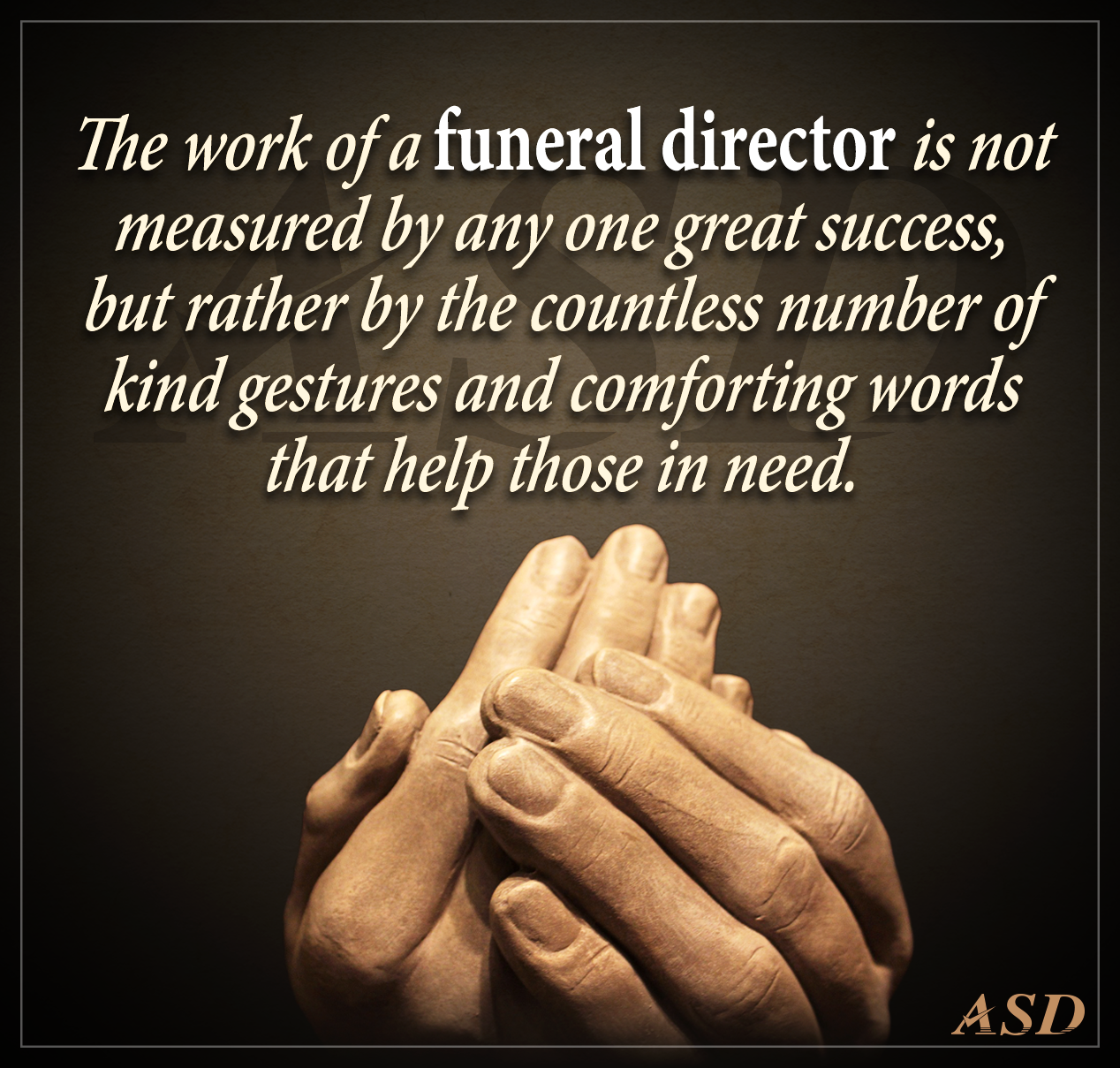
Profits. Awards. Promotions. Titles. Wealth. Praise.
For many, these aspirations are what drive their career. For funeral directors, there is one motivation that supersedes all – a calling to help those in need. The passion that funeral professionals have for bringing comfort to those who are hurting is greater than any other measurement of success.
13. Courage
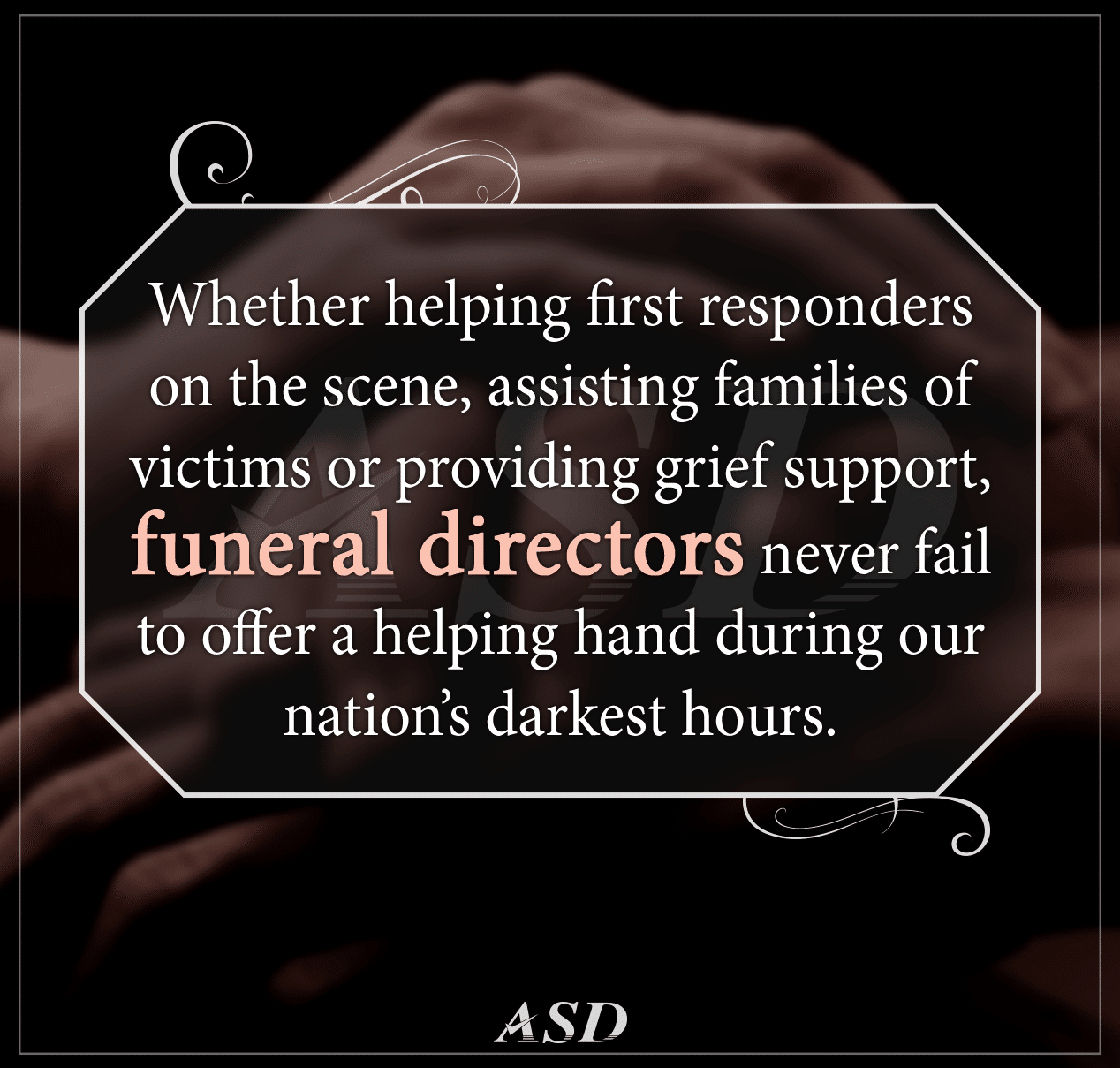
It cannot be overstated how much bravery funeral professionals must possess in order to face some of life’s most horrific tragedies. From those tasked with identifying remains at 9/11 to those who volunteered to came to Newtown, CT to assist with burials after the Sandy Hook shooting, these courageous souls are often haunted by what they face but that doesn’t stop them from stepping in to help.
14. Conviction
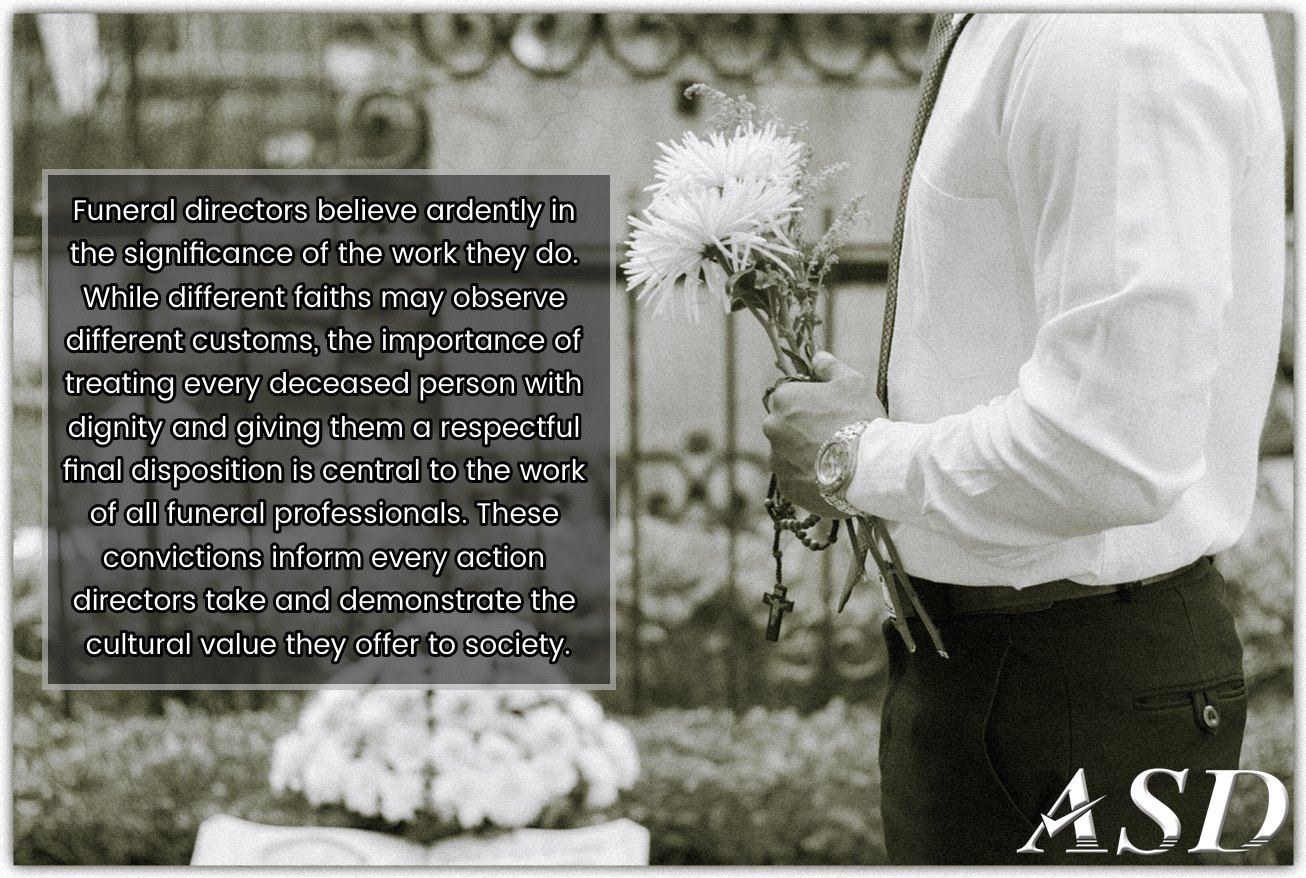
A lot of people have different opinions when it comes to funeral service customs and final disposition options. It is not uncommon funeral directors with vastly different perspectives to debate about these issues because they are so passionate about them. However, when you strip all of that away, the role of the funeral service profession can best be defined with a simple quote by poet and funeral director, Thomas Lynch: “A good funeral gets the dead where they need to go and the living where they need to be.” This common goal drives the work of all those who work in the funeral service profession.
15. Generosity
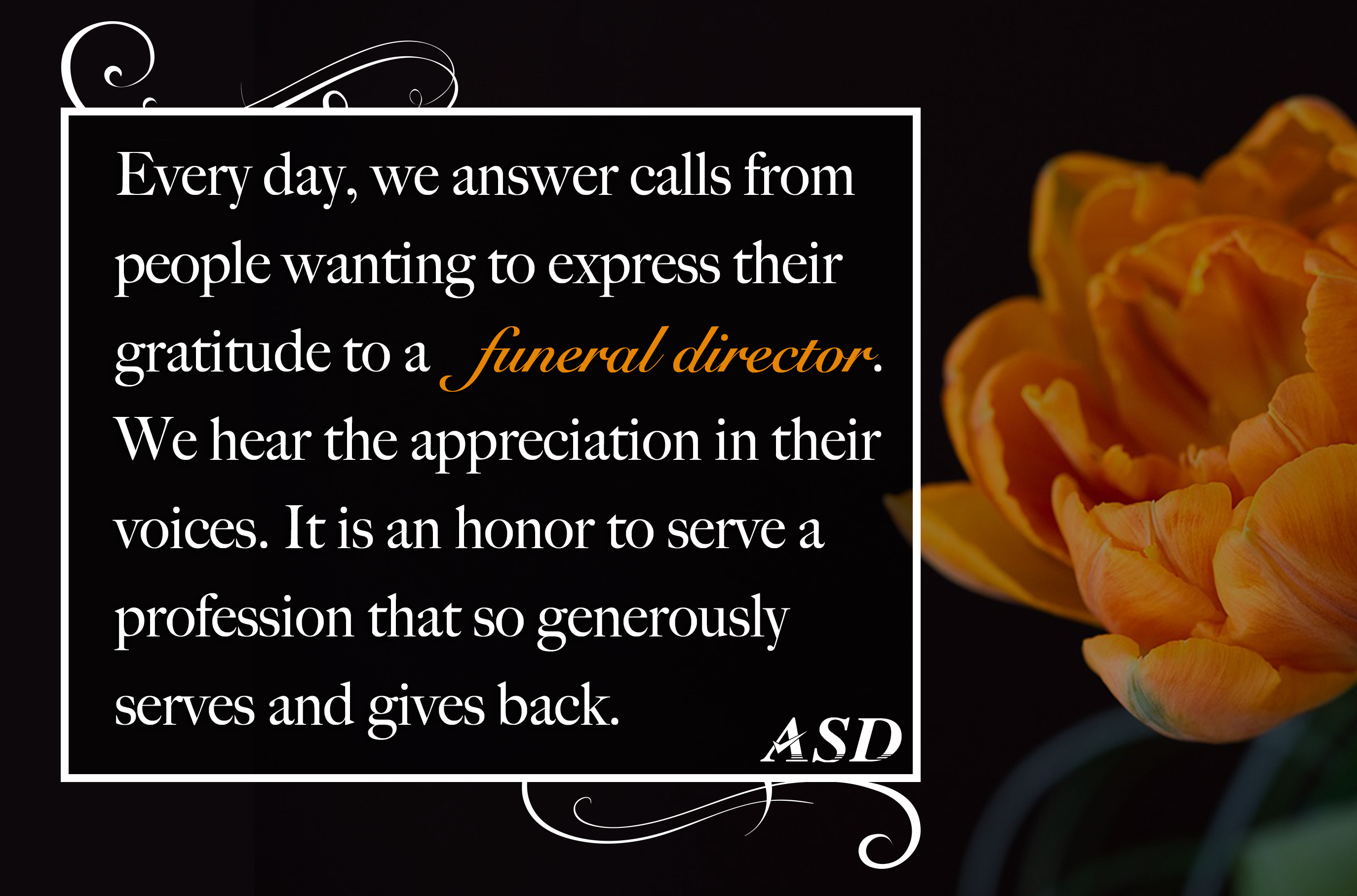
One of the most common calls answered at ASD are from family members that want to express how much they appreciate they way a funeral home director supported them in their time of need. This is a big reason why ASD became funeral exclusive all of those years ago. Funeral directors cared more about their callers and we were moved by their commitment to others. We witnessed firsthand how much funeral directors do for families and how much their efforts help the bereaved.
16. Good Humored
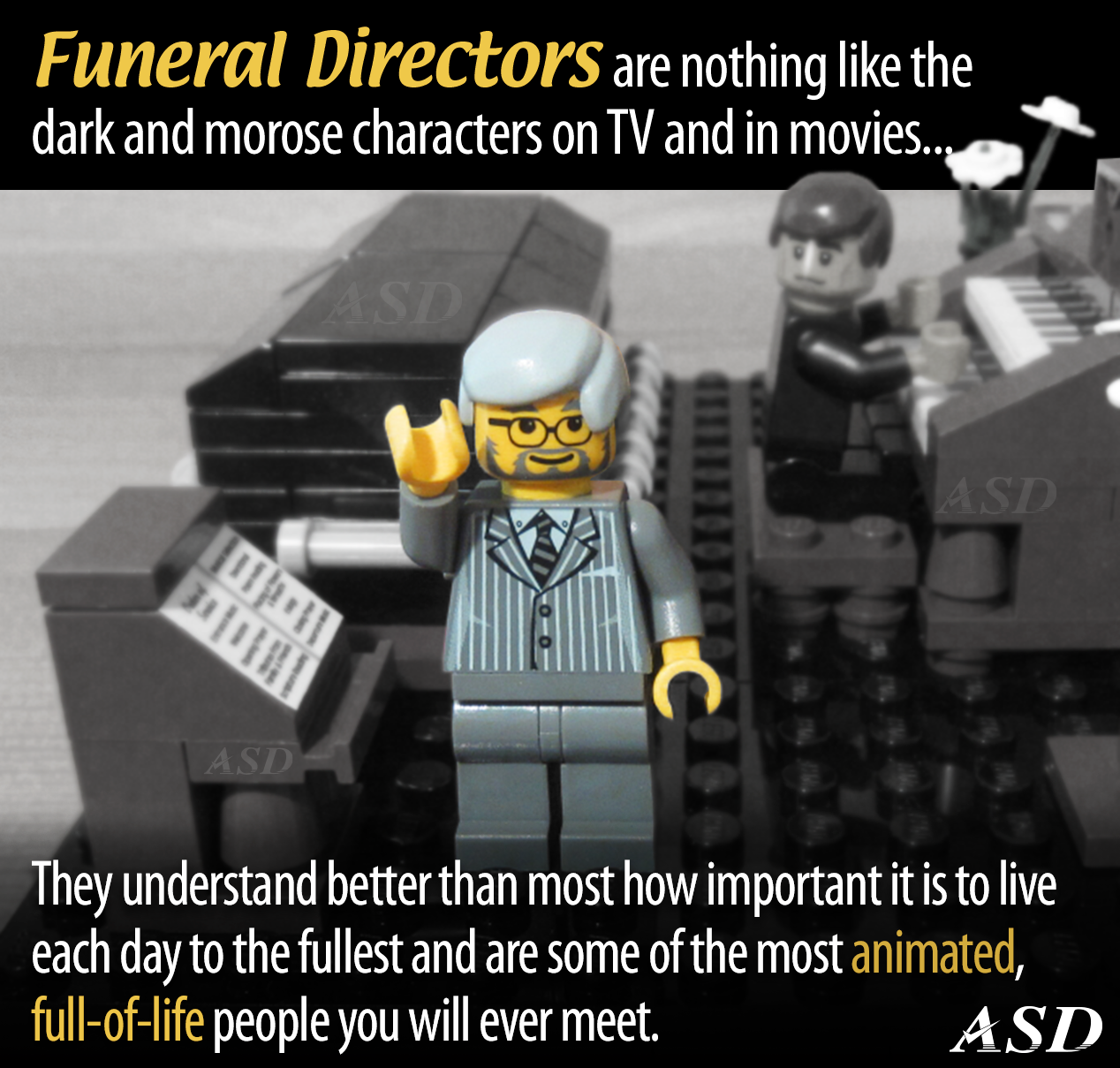
There are countless incorrect and off-base stereotypes out there about funeral directors that have been reinforced by misrepresentations in movies and television. One of the worst offenders is the characterization of morticians as creepy, morose, or gothic. This depiction could not be further from the truth. If you’re trying to find a funeral director in a crowd, don’t start looking in the shadows. The reality is, most funeral professionals have very animated and spirited personalities. Their unpredictable schedule usually has insanely long hours, so when they are outside of funeral home they are likely to be having fun, laughing and living it up.

Which one of these qualities do you think is the most crucial for funeral directors to possess? Are there any important character traits we left off our list? Share your thoughts in the comments below.
Related Reading:
30 Facts About Funeral Directors in Honor of National Funeral Directors Recognition Day
10 Reasons To Be Thankful For Funeral Directors
16 Photos that Exemplify the Best of Funeral Service
Looking for Stress? Become a Funeral Director
About The Author
Jess Farren (Fowler)
Jess Farren (Fowler) is a Public Relations Specialist and Staff Writer who has been a part of the ASD team since 2003. Jess manages ASD’s company blog and has been published in several funeral trade magazines. She has written articles on a variety of subjects including communication, business planning, technology, marketing and funeral trends. You can contact Jess directly at Jess@myASD.com
